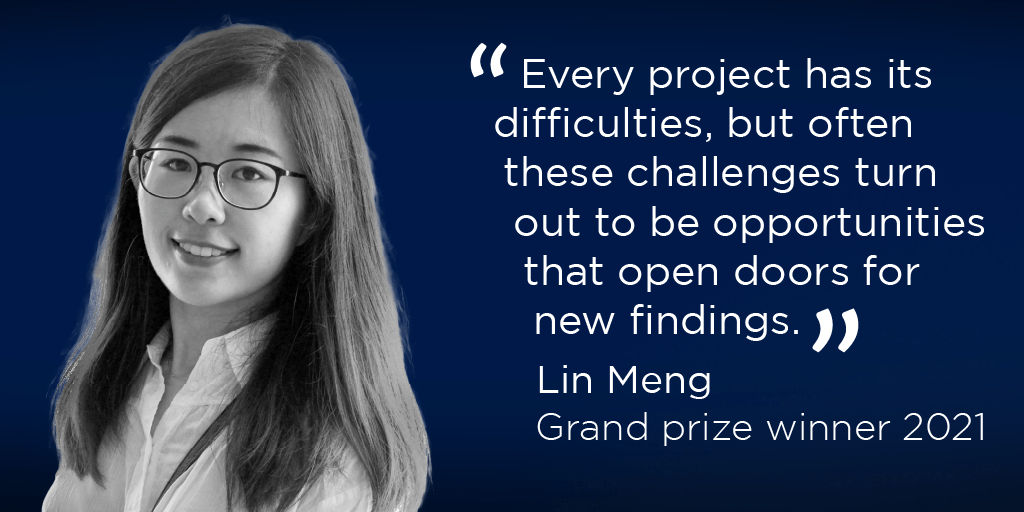Revisiting discarded research won Lin Meng the grand prize
For her research on how warm and bright cities uniquely influence tree greening, Lin Meng won the grand prize of the 2021 Science & SciLifeLab Prize for Young Scientists, but the COVID-19 pandemic did not make it easy to collect the prize – or start a research career.
The COVID-19 pandemic has affected many researchers and their research. Ling Meng graduated when an entirely virtual working environment was already on its way. She conducted her PhD defense virtually, and the in-person PhD Hooding Ceremony was canceled. She then started her postdoc position at Lawrence Berkeley National Laboratory fully remote. A whole year had passed before Lin Meng moved to the Bay Area and met her new colleagues in person.
“The water cooler chats and hallway conversations are very helpful to know the culture and make social bonds, but are no longer happening due to covid. My division does have virtual water cooler chats though, which are fun and helpful” says Lin Meng.
Ling Meng is currently supposed to be working on a collaborative project with researchers that do fieldwork in the Amazon, but the fieldwork and the field data processing have been postponed due to COVID-19.
The latest in Lin Meng’s unconventional career start was the impossible task of getting to Sweden to receive the grand prize of the 2021 Science & SciLifeLab Prize for Young Scientists. Due to the pandemic, she cannot get a visa to travel internationally. Instead, she held an online talk describing her prize-winning research.
“It’s hard to simply say if I have gotten a better or worse start compared to before COVID, it really depends on how fast people adapt to this new normal and utilize the new technologies” says Lin Meng.
Taking a fresh look at discarded research
During Lin Meng’s PhD research, she developed a project where she wanted to investigate how phenology changed across latitudes. She downloaded data of the European Alps and conducted an analysis, but the results showed almost no effect of latitude on phenology. Trees at both high and low latitudes developed leaves at a similar time. Lin Meng found this very surprising. According to common sense, high latitude is colder, so spring green-up dates would be expected to be much later at higher latitude.
She investigated further and eventually found that there were almost no temperature changes across latitudes in the northern Alps. This is because the elevation decreases with the increase in latitude, so the elevation effect and latitude effect on temperature is canceled out. This explained what she found, but her intended project did not work out.
Later Ling Meng got a NASA fellowship and used NASA data to look at the artificial light effect on phenology in cities. In this new project, she faced a challenge to disentangle temperature and light effects on phenology because both temperature and artificial light increase from rural to urban environments. Enter the failed Alps project. In the northern Alps, the temperature does not change across latitude, but day length does. She had found a natural way to disentangle temperature and light effects.
Her Alps project came to life again in a new way. Instead of analysing the latitude effect, she now investigated the photoperiod effect – how day length affects tree greening. The findings from this Alps project also laid the foundation for her NASA project on artificial light and phenology. Both ended up becoming published.
“Every project has its difficulties, but often these challenges turn out to be opportunities that open doors for new findings” says Lin Meng.
Dive deeper into Lin Meng’s prize-winning research, watch her presentation of that research and read her essay in Science Magazine.





